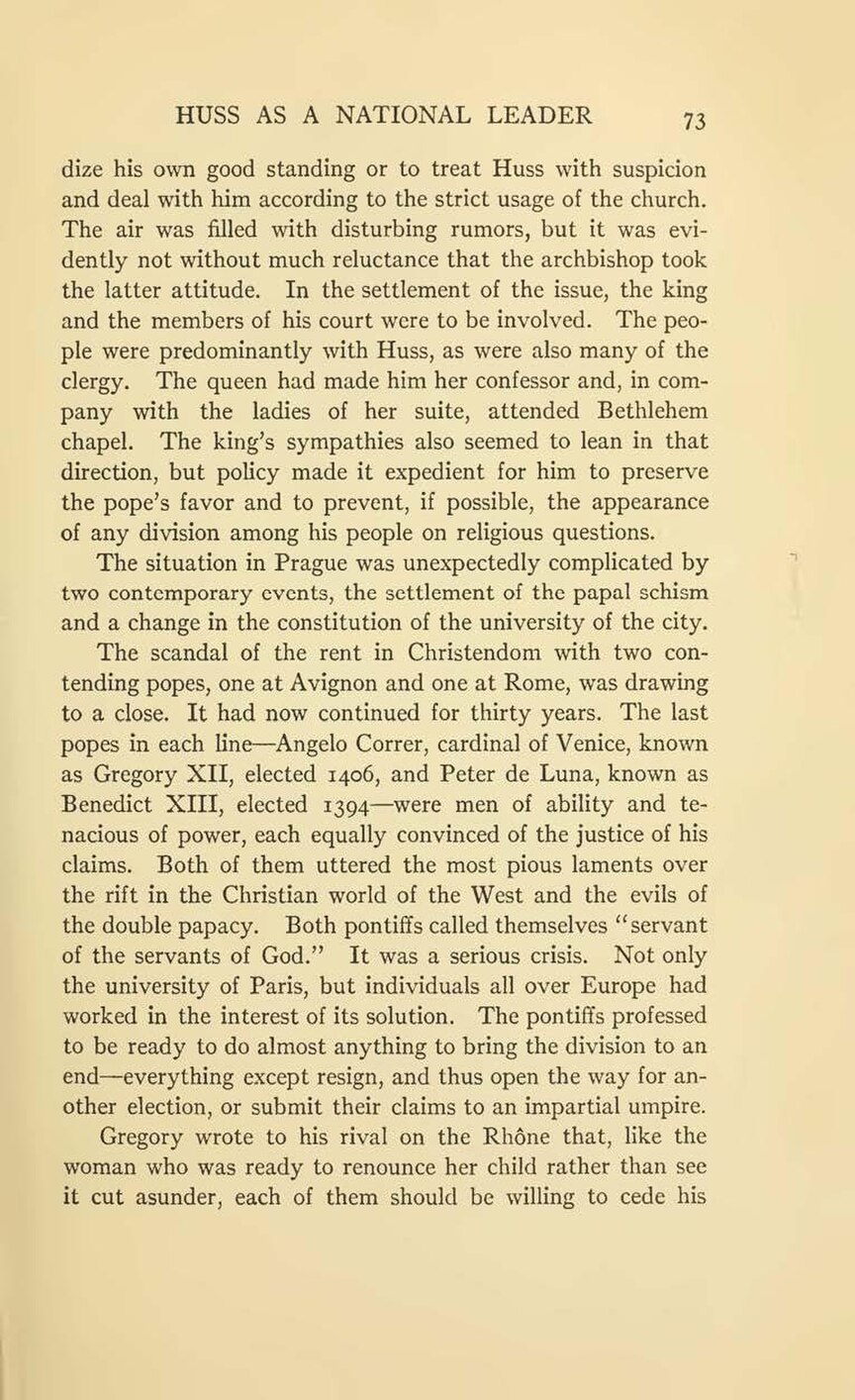dize his own good standing or to treat Huss with suspicion and deal with him according to the strict usage of the church. The air was filled with disturbing rumors, but it was evidently not without much reluctance that the archbishop took the latter attitude. In the settlement of the issue, the king and the members of his court were to be involved. The people were predominantly with Huss, as were also many of the clergy. The queen had made him her confessor and, in company with the ladies of her suite, attended Bethlehem chapel. The king’s sympathies also seemed to lean in that direction, but policy made it expedient for him to preserve the pope’s favor and to prevent, if possible, the appearance of any division among his people on religious questions.
The situation in Prague was unexpectedly complicated by two contemporary events, the settlement of the papal schism and a change in the constitution of the university of the city.
The scandal of the rent in Christendom with two contending popes, one at Avignon and one at Rome, was drawing to a close. It had now continued for thirty years. The last popes in each line—Angelo Correr, cardinal of Venice, known as Gregory XII, elected 1406, and Peter de Luna, known as Benedict XIII, elected 1394—were men of ability and tenacious of power, each equally convinced of the justice of his claims. Both of them uttered the most pious laments over the rift in the Christian world of the West and the evils of the double papacy. Both pontiffs called themselves “servant of the servants of God.” It was a serious crisis. Not only the university of Paris, but individuals all over Europe had worked in the interest of its solution. The pontifis professed to be ready to do almost anything to bring the division to an end—everything except resign, and thus open the way for another election, or submit their claims to an impartial umpire.
Gregory wrote to his rival on the Rhône that, like the woman who was ready to renounce her child rather than see it cut asunder, each of them should be willing to cede his
